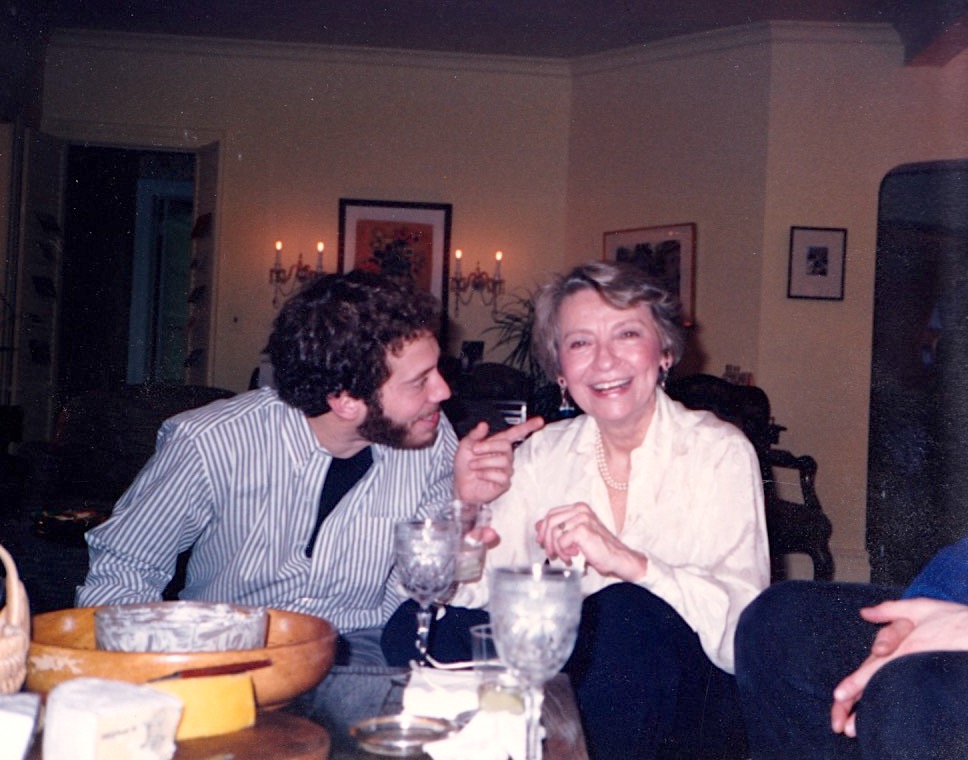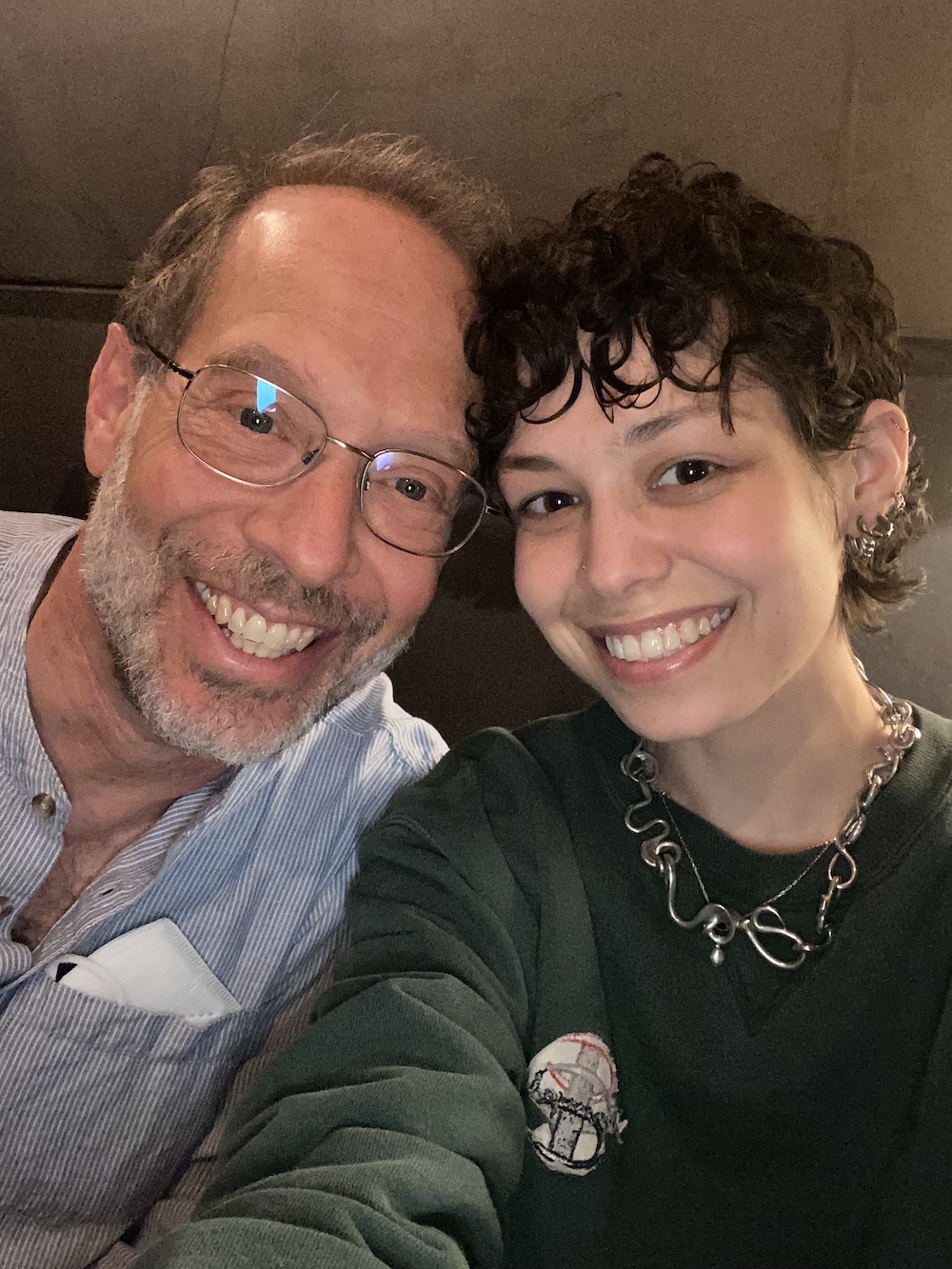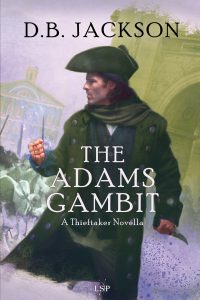 Yesterday would have been my mother’s birthday — her 101st. I’ve written about her, and my dad, quit a bit in this space, though I haven’t written about my mother in a couple of years. She was smart and funny, classy and beautiful, quietly ambitious and deeply accomplished. She doted on her children and was, in turn, doted on by my father. She loved to travel and was passionate to the point of reverence about literature and the arts.
Yesterday would have been my mother’s birthday — her 101st. I’ve written about her, and my dad, quit a bit in this space, though I haven’t written about my mother in a couple of years. She was smart and funny, classy and beautiful, quietly ambitious and deeply accomplished. She doted on her children and was, in turn, doted on by my father. She loved to travel and was passionate to the point of reverence about literature and the arts.
No one would ever accuse her of hands-off parenting. That wasn’t her thing. She was a constant and profound presence in the lives of my siblings and me. And yet, when I scour my mind for specific memories of her, I sometimes find them hard to gather. I’m not alone in this regard. My brother and I have discussed this at length and agree that she was, in a way, so constant, so engaged, that specifics give way to a sense of warm omnipresence.
But today, as I think of her, I find myself focusing on two phone conversations that took place rather late in her life and that have stuck with me over the years, for very, very different reasons.
The first took place when I was in graduate school. It was my second year — I’m sure of this, because I recall the project I was working on at the time. My mom loved that I was studying history, and I think she looked forward to me becoming a college professor. She never really approved of my decision to give up history for a career as a fantasy author, and she never saw any of my books in print, which I think would have won her over a bit. But I digress . . . .
She asked me about the project I was working on — a study of changing dynamics within the Democratic Party in the period between the landslide elections of 1964 (Lyndon Johnson) and 1972 (Richard Nixon) — and I told her about what I was learning, but also admitted there were elements of the story I was trying to tell that I had yet to figure out. She began to ask me questions, one after another, and eventually she pointed me to a crucial part of the narrative that I had been missing all along. I know — and knew then — it should have been obvious to me, but I think I was so immersed in the material, I just couldn’t see it.
But Mom did. She had such a nimble mind and was so good at synthesizing information and distilling it down to its most important elements. She was also a remarkable listener, and she liked nothing more than to speak with her children and help them deal with whatever was consuming them at the moment, whether it was a personal problem or an academic one. When I told her how helpful she’d been, and described for her how I could slot her insight into what I’d been writing, she was thrilled. I could hear her beaming. It was a wonderful moment.
Mom was diagnosed with cancer a couple of years later and was pounded by her chemotherapy treatments. Her cancer spread despite the drugs and at one point she needed to have brain surgery to remove a tumor. Not long after, early in 1995, mom slipped into dementia. Conversations with her became next to impossible. That brilliant mind lost its power, its coherence. It was truly tragic. We lost her long before she died.
Except I got her back for one last conversation — the most important I’d ever had up to that point in my life. In May of 1995, Nancy gave birth to our first daughter — after a labor that lasted some forty-two hours. Grueling for Nancy, exhausting for both of us. I called my parents to let them know, figuring I would just speak with my Dad. But Mom got on the phone, too. And for five glorious minutes, she was back. Fully. Miraculously, She asked all the right questions — “How is Nancy?” “What’s the baby’s name?” “Did everything go smoothly?” “Is the baby beautiful?” — and said all the right things, telling me how much she looked forward to meeting Alex, how happy she was for both Nancy and me. I think she even was cogent enough to ask who was taking care of our dog.
I hadn’t had a conversation like that with my mother in months, and the truth is, I never had another one like it. But in that moment, on the most important day of my life thus far, she was there for me. I guess it shouldn’t have surprised me, since being there for my siblings and me was what she did best.
I miss her every day. I wish she had seen my books in print. I wish she’d had the opportunity to meet my girls — she would have adored them. I wish I could speak with her today, to get her input on plot lines and her opinions on the issues of the world. I wish I could hear her laugh and see her gorgeous smile. But I will content myself with my memories, and with that sense of loving omnipresence that suffuses all my thoughts of her.
Happy birthday, Mom.









 From Virginia Beach, I went to Brooklyn, where I spent two evenings with my older daughter. She looks beautiful, seems great, has a ton of energy, and was her normal, playful, thoughtful, intelligent, insightful, slightly acerbic self. Seeing her, having such amazing time with her, was reassuring to say the least.
From Virginia Beach, I went to Brooklyn, where I spent two evenings with my older daughter. She looks beautiful, seems great, has a ton of energy, and was her normal, playful, thoughtful, intelligent, insightful, slightly acerbic self. Seeing her, having such amazing time with her, was reassuring to say the least. After running away from social media for six weeks, and ignoring publicity opportunities and the like, I feel a little funny offering any professional advice to anyone on anything. Which, I realize, is entirely wrong-headed.
After running away from social media for six weeks, and ignoring publicity opportunities and the like, I feel a little funny offering any professional advice to anyone on anything. Which, I realize, is entirely wrong-headed. In the end, I hit my deadline. More, the book I wrote that spring, Invasives, the second Radiants novel, turned out better than I ever could have imagined. I love the book, not only because I think it’s good, but because it saved me. It got me through that terrible spring and early summer.
In the end, I hit my deadline. More, the book I wrote that spring, Invasives, the second Radiants novel, turned out better than I ever could have imagined. I love the book, not only because I think it’s good, but because it saved me. It got me through that terrible spring and early summer. I was in the middle of writing a book — Invasives, the sequel to Radiants — and I dove back in. It’s a book about family, as so many of my novels are, and about discovering powers within. It doesn’t take much imagination to understand why I would find that particular story line comforting.
I was in the middle of writing a book — Invasives, the sequel to Radiants — and I dove back in. It’s a book about family, as so many of my novels are, and about discovering powers within. It doesn’t take much imagination to understand why I would find that particular story line comforting. And so around that time, unsure of what to write next, I acted on an idea I’d had for several years. I hung out my virtual shingle as a freelance editor. Work came in quickly, and before I knew it I was editing a series for one friend, and talking to others about future editing projects. I also released the Thieftaker novellas. And prepared for the October release of Radiants. And started gearing up for the Kickstarter for Noir, the anthology I’m co-editing for
And so around that time, unsure of what to write next, I acted on an idea I’d had for several years. I hung out my virtual shingle as a freelance editor. Work came in quickly, and before I knew it I was editing a series for one friend, and talking to others about future editing projects. I also released the Thieftaker novellas. And prepared for the October release of Radiants. And started gearing up for the Kickstarter for Noir, the anthology I’m co-editing for